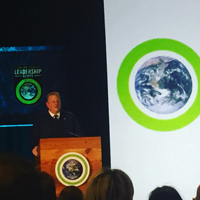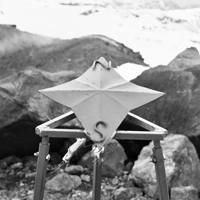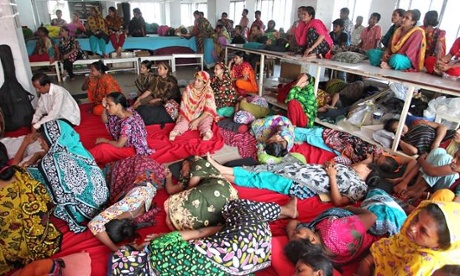
VF, owners of Vans, The North Face, Timberland, and Wrangler, among others, are working with IFC, a member of the World Bank Group to provide loans to 3 Bangladeshi garment factories under a new program for funding fire and building safety improvements.
This is obviously a step in the right direction with transparency being a key asset. However, it brings up the initial point of why such measures are needed in the first place, as we reported in August, 2014. When the tragic event of Bangladesh’s Rana Plaza building collapsed on April 24, 2013, resulting in the deaths of more than 1,133 garment workers, and injuring more than 2,500 others, the veil masking fashion’s dirty secrets was stripped away. Suddenly, people demanded to know what was going on with the garment industry and workers’ safety, people questioned conditions, fair wages, building safety, and sustainability became a key motivator for change.
Young people make up a large percentage of the demographic that is pushing for transparency and change. They read labels on their T-shirts and denim; they ask questions behind the story of the brand; and they are spending differently. As we’ve revealed in our 3rd Annual Sustainability and the State of the Future Youth Culture Study 2014, released on Tuesday, August 12, 2014, there’s no going back to less green or less safe in terms of workers’ conditions. Fair trade fashion and sustainability are at the forefront for the future.
That’s why when VF Corporation, owners of The North Face, Wrangler, Vans, Timberland, Jansport, and others revealed their latest progress regarding their steps as members of the Alliance for Bangladesh Worker Safety, it brings up the still larger question of where were they before the tragedy struck?
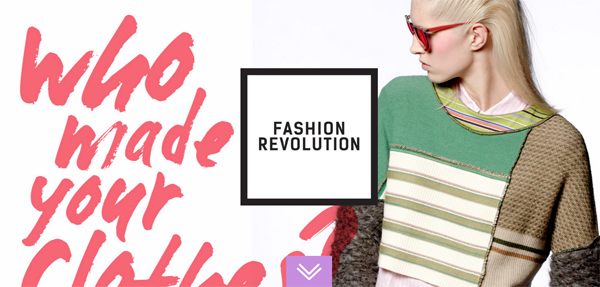
Other movements have brought significant attention to such problems in the fashion industry such as the highly success Fashion Revolution Day. On April 24, 2014, in 60 countries around the world, tens of thousands of people participated in the first annual Fashion Revolution Day. People were encouraged to turn their clothes inside-out and ask the question, “Who made your clothes?” It was a protest movement that spread across social media with the handle #insideout on Twitter in response to the Rana Plaza factory complex collapsed in Dhaka, Bangladesh, on April 24, 2013. This factory was where many brands in the fashion and footwear industry had their products manufactured.
The tragedy was a wake-up call within the fashion industry, and brought to the forefront the broken links in the supply chain and the social and environmental problems that stem for this industry. Fashion Revolution Day took hold across the globe, especially among youth culture, who continue to ask more and more, how their fashion and footwear are being made and demanding transparency.
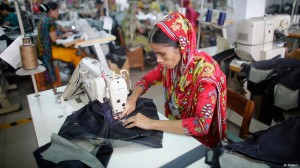
Meanwhile, here’s the latest VF Corporation statement regarding the loans:
Through the financing arrangement, VF provides a full corporate guarantee for up to $10 million that the IFC and its partner BRAC Bank lend to VF’s contract suppliers. VF’s guarantee to back the loans makes it possible for IFC to lend at lower interest rates. This initiative helps VF suppliers in Bangladesh overcome financial obstacles to improving workplace safety conditions.
“Providing these loans to help supplier factories fund the necessary improvements is another positive step forward in VF’s efforts to ensure the safety of the people making our products in Bangladesh,” said Tom Glaser, VF’s President of Supply Chain.
The financing structure from VF and IFC helps enable factory owners meet the stringent standards set forth by the Alliance for Bangladesh Worker Safety (Alliance), an industry group of international apparel manufacturers and buyers whose work includes the inspection of Bangladeshi garment factories and development of corrective action plans for meeting acceptable standards. VF is one of 26 Alliance members.
IFC disbursed an initial set of loan payments, totaling $1.3 million, to three factory owners: Arunima Sportswear Ltd.; Olio Apparels Ltd.; and, Radisson Apparel Ltd. These owners will use the capital to invest in safety upgrades such as the installation of fire sprinklers, fire doors and detection systems, along with other necessary repairs and safety precautions.
“The apparel industry has provided employment and reduced poverty for millions of people in Bangladesh. This financing model, which we think could work well for other buyers and suppliers, will help improve work conditions and facilitate growth and development,” said Sergio Pimenta, IFC Director for Manufacturing, Agribusiness and Services.
VF and IFC are granting loans to VF’s supplier factories in the range of $100,000 to $1 million. The lending program is part of VF’s efforts to help suppliers achieve performance standards for assessing and managing environmental and social risks and impacts, and labor and working conditions.
More information on VF’s commitment to worker safety in Bangladesh and updates on its progress can be found at WeCare.VFC.com.
